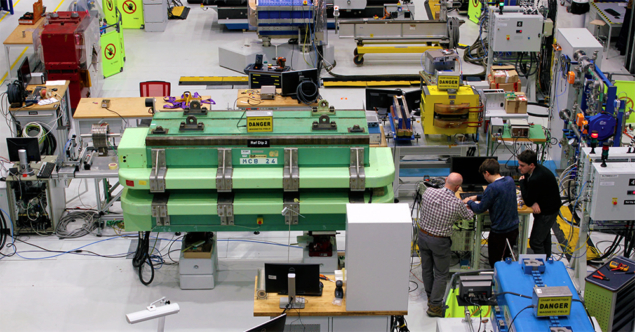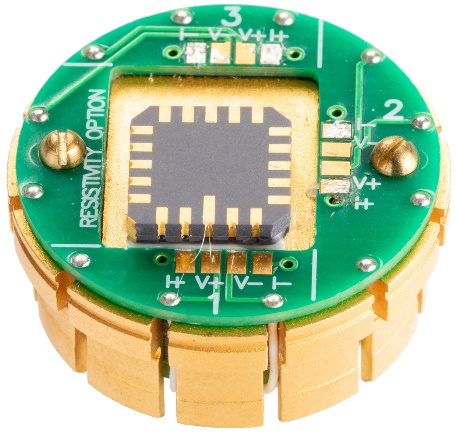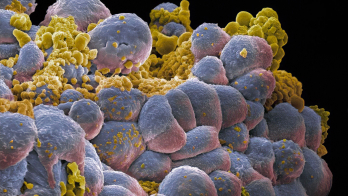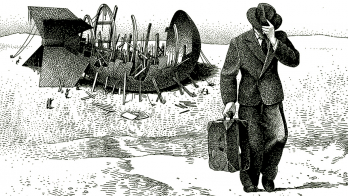
First isolated in 2004 by physicists at the University of Manchester using pieces of sticky tape and a graphite block, the one-atom-thick carbon allotrope graphene has been touted as a wonder material on account of its exceptional electrical, thermal and physical properties. Turning these properties into scalable commercial devices has proved challenging, however, which makes a recently agreed collaboration between CERN and UK firm Paragraf on graphene-based Hall-probe sensors especially novel.
There is probably no other facility in the world to be able to confirm this, so the project has been a big win on both sides
Ellie Galanis
With particle accelerators requiring large numbers of normal and superconducting magnets, high-precision and reliable magnetic measurements are essential. While the workhorse for these measurements is the rotating-coil magnetometer with a resolution limit of the order of 10–8 Vs, the most important tool for local field mapping is the Hall probe, which passes electrical current proportional to the field strength when the sensor is perpendicular to a magnetic field. However, measurement uncertainties in the 10–4 range required for determining field multipoles are difficult to obtain, even with the state-of-the-art devices. False signals caused by non-perpendicular field components in the three-dimensional sensing region of existing Hall probes can increase the measurement uncertainty, requiring complex and time-consuming calibration and processing to separate true signals from systematic errors. With an active sensing component made of atomically thin graphene, which is effectively two-dimensional, a graphene-based Hall probe in principle suffers negligible planar Hall effects and therefore could enable higher precision mapping of local magnetic fields.
Inspiration strikes
Stephan Russenschuck, head of the magnetic measurement section at CERN, spotted the potential of graphene-based Hall probes when he heard about a talk given by Paragraf – a recent spin-out from the department of materials science at the University of Cambridge – at a magnetic measurement conference in December 2018. This led to a collaboration, formalised between CERN and Paragraf in April, which has seen several graphene sensors installed and tested at CERN during the past year. The firm sought to develop and test the device ahead of a full product launch by the end of this year, and the results so far, based on well-calibrated field measurements in CERN’s reference magnets, have been very promising. “The collaboration has proved that the sensor has no planar effect,” says Paragraf’s Ellie Galanis. “This was a learning step. There is probably no other facility in the world to be able to confirm this, so the project has been a big win on both sides.”

The graphene Hall sensor also operates over a wide temperature range, down to liquid-helium temperatures at which superconducting magnets in the LHC operate. “How these sensors behave at cryogenic temperatures is very interesting,” says Russenschuck. “Usually the operation of Hall sensors at cryogenic temperatures requires careful calibration and in situ cross-calibration with fluxmetric methods. Moreover, we are now exploring the sensors on a rotating shaft, which could be a breakthrough for extracting local, transversal field harmonics. Graphene sensors could get rid of the spurious modes that come from nonlinearities and planar effects.”
CERN and Paragraf, which has patented a scalable process for depositing two-dimensional materials directly onto semiconductor-compatible substrates, plan to release a joint white paper communicating the results so far and detailing the sensor’s performance across a range of magnetic fields.








